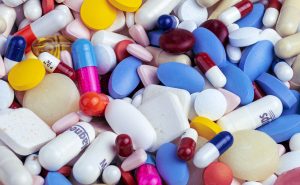Recovery Delivered now offers opioid and alcohol detox online as well as other addiction treatment programs.
Recovery Delivered (RD) is now offering online, at-home opioid detoxification from alcohol and opioid drugs and other addiction treatment programs. Patients are being monitored by meeting online with a medical professional daily who can offer suboxone, if needed, which is delivered to a patient’s home. The new program is covered by most insurance plans and was established to support individuals looking to get sober remotely during the pandemic. Medication Assisted Treatment (MAT) is currently considered the best option for the treatment of opioid use disorder (OUD) and being able to complete this treatment at home is a revolutionary approach to addiction therapy.
Suboxone is a prescription medication approved by the Food and Drug Administration (FDA) that acts as an opioid agonist to help ease withdrawal symptoms from other opioids. It both curbs cravings and block the receptors in the brain that makes a person “get high” through the combination of two medications, Buprenorphine and Naloxone. The detoxification plan that has been put into place by RD begins with taking a participants’ vitals, which the physician checks through the RD app, and there is a chat option available for users to ask questions. RD also offers online group addiction counseling support meetings intended to be used in addition to one-on-one counseling and the online MAT program. These addiction treatment group sessions are not mandatory but encouraged as part of a sustainable recovery process.

COVID-19 is causing many individuals who have a history of addiction to relapse mainly due to increased stress, which can make addicts to want to go back to the maladaptive ways in which they’ve coped with, and escaped from, stressors. Relapses can set addicts back in their recovery even after long periods of sobriety and can lead to serious injuries and death by overdose, especially because many individuals cannot return to using at the same levels that had been previously. Traditional recovery methods are simply not conducive to current circumstances, and many people are being met with long waitlists when trying to get into programs.
“The number of opioid overdoses is skyrocketing, and I don’t think it will be easily turned back,” said Dr. Mike Brumage, former director of the West Virginia office of drug control policy. “Once the tsunami of COVID-19 finally recedes, we’re going to be left with the social conditions that enabled the opioid crisis to emerge in the first place, and those are not going to go away.”
He added, “Significant numbers of people have fallen out of treatment programs as support networks have been yanked away by social distancing orders. I’m a firm adherent to the idea that the opposite of addiction is not sobriety, the opposite of addiction is connection. Clearly, what we have lost with the pandemic is a loss of connection. Many of the people who were using the program either didn’t have broadband or they didn’t have cellphone service, especially those who were homeless. They just fell out of the program.”
In addition to the physician-assisted support and online group support offered by RD, the practice suggests keeping an open line of communication with friends and family during this time, asking for help before turning to substance use. Building a strong support system at home during the pandemic is a vital part of sobriety.
Sources:
Online Suboxone Doctors Provide At-Home Medical Detoxification From Opioids
Coronavirus Pandemic Compounds Another Ongoing Crisis: The Opioid Epidemic
‘Opioid overdoses are skyrocketing’: as Covid-19 sweeps across US an old epidemic returns


Join the conversation!